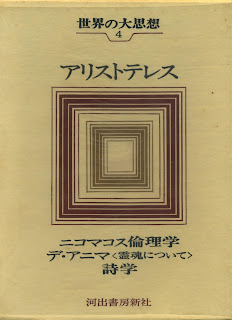バーク『フランス革命の省察』(37)フランス革命という悲劇
Why do I feel so differently from the Reverend Dr. Price, and those of his lay flock who will choose to adopt the sentiments of his discourse?—For this plain reason: Because it is natural I should; because we are so made as to be affected at such spectacles with melancholy sentiments upon the unstable condition of mortal prosperity, and the tremendous uncertainty of human greatness; because in those natural feelings we learn great lessons; because in events like these our passions instruct our reason; because, when kings are hurled from their thrones by the Supreme Director of this great drama, and become the objects of insult to the base and of pity to the good, we behold such disasters in the moral as we should behold a miracle in the physical order of things.
(なぜ私は、プライス牧師や、師の説教の言葉を採用しようとする平信徒集団と違い、こう思うのだろうか。――この単純な理由ゆえ、すなわち、こう思うのが自然だからです。このような光景を見ると、人間が繁栄する状態が不安定であり、人間が偉大であることが極めて不確かであることに憂鬱な感情を抱くように出来ているからです。そういった自然の感情で大きな教訓を学ぶからです。このような出来事で、私達の情熱が私達の理性を指導するからです。この偉大なドラマの最高監督によって国王が王位から放り出され、生まれの卑しい人々には侮辱の、善良な人々には哀れみの対象となるとき、私達は、物事の物理的秩序における奇跡を見るように、道徳における災いを見るからです)―
cf. 半澤訳、p. 102
要は、頭でっかちな妄想に憑りつかれた人々は、「自然」な感情を失ってしまったから、「革命」のような破壊活動に熱狂出来たということだ。熱狂によって、人々は冷静な判断力を失う。冷静な判断には、個人の心の中にある「良心」の声が聞こえるだけの静けさが必要なのだ。
We are
alarmed into reflection; our minds (as it has long since been observed) are
purified by terror and pity; our weak, unthinking pride is humbled under the
dispensations of a mysterious wisdom. Some tears might be drawn from me, if
such a spectacle were exhibited on the stage. I should be truly ashamed of
finding in myself that superficial, theatric sense of painted distress, whilst
I could exult over it in real life.
(私達は、驚き、反省する。私達の心は(随分昔から観察されたように)恐怖と憐憫(れんびん)によって浄化され、私達の弱く軽率な高慢の鼻は、神秘的な知恵の配剤の下にへし折られるのです)―
cf. 半澤訳、p. 102f
バークは、アリストテレス「詩学」の一節を参照している。
《悲劇は、高貴で完結し相当の長さをもった行為の模倣である。そして劇の部分部分にはそれぞれ種類のちがった快く味つけされた言葉が別々に用いられている。そして叙述の形式をとらないで、登場人物が演技によって模倣し、憐憫と恐怖をひき起こす事件を進行させながら、もろもろのこういった様態(パテーマタ)からの浄化(カタルシス)をしとげるのである》(アリストテレス「詩学」:1449b25-29:『世界の大思想4 アリストテレス』(河出書房新社)村治能就訳、p.
363)
《すぐれた物語の筋は…二重なものであるよりも、むしろ、単純なものでなければならない。つまり不運から幸運へと変転するのではなくて、反対に幸運から不運に変転する。しかもそれは邪悪によるのではなく、大きな過失によるのでなければならない。それはいまのべたような人物のなにか、大きな過失か、もしくは劣悪なものよりも、むしろ、たいへん善良なひとの過失かでなければならない》(同:1453a13-18)
このように、バークはフランス革命をアリストテレスの悲劇論と重ね合わせて見ているのである。
With such a perverted mind, I could never venture to show my face at a tragedy. People would think the tears that Garrick formerly, or that Siddons not long since, have extorted from me, were the tears of hypocrisy; I should know them to be the tears of folly.
(このような光景が舞台で繰り広げられたら、私の涙を誘(さそ)うかもしれません。実生活では表面的で芝居がかった偽りの苦痛感を大喜びできたとしても、その感覚が今の自分にあることに気付いて、私は本当に恥じ入ることでしょう。そのような邪悪な精神では、私は、悲劇を見に敢えて顔を出すことなど到底できません。ギャリックが以前、あるいはシドンズが最近、私から無理やり引き出した涙は、偽善の涙だと思われるでしょう。私は、それらは愚劣の涙だと知ることでしょう)― cf. 半澤訳、p. 103

コメント
コメントを投稿